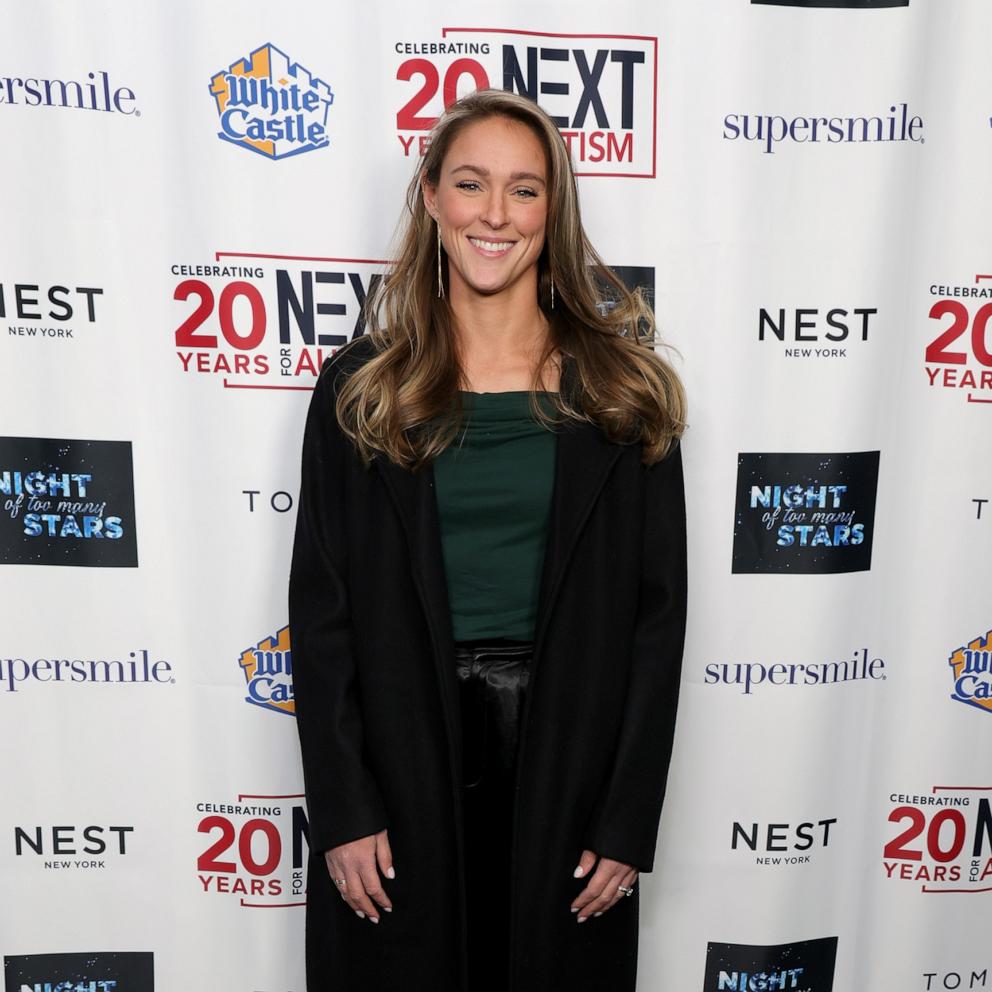Inside Apple's secret audio labs ahead of the AirPods Pro 2 update
In the middle of a nondescript office park in Cupertino, California, is one of Apple's best kept secrets.
"We don't let cameras in this place normally. And so it's a little bit of an out-of-body experience for everybody," John Ternus, senior vice president of hardware engineering at Apple, told ABC News' Rebecca Jarvis in an exclusive interview that aired Monday on "Good Morning America."

Inside are the company's multiple audio labs where engineers have been validating and fine-tuning the new hearing aid feature that will give the Apple AirPods Pro 2 wireless earbuds the ability to become FDA-cleared hearing aids.
In an exclusive announcement on "GMA," Apple said the software update for the AirPods Pro 2 will be available in about a week, which, along with the hearing aid, includes a hearing test and hearing protection functionality.


The development could be a game changer, considering about 1.5 billion people around the world experience some kind of hearing loss, according to the World Health Organization.

"Hearing loss is such a widespread issue, and the sad reality is the vast majority of people who have hearing loss don't do anything about it, and so here's an opportunity for us to actually make a super simple, easy solution -- and yeah, it's deeply personal for probably most of the people working on this product," Ternus said.
Jarvis got an inside look at Apple's audio labs, marking the first-time television cameras have been allowed inside.

Fantasia Lab is a one-of-a-kind audio lab where Apple engineers have spent years experimenting and fine-tuning hearing technology. Inside are 50 loudspeakers constructed in a circular pattern, that can play back hundreds of sound scenes that mimic everyday life. The company enlisted a broad demographic of participants with a range of hearing abilities to help develop the hearing aid, hearing protection features and more.
"Everybody's hearing profile is slightly different. So, essentially, we've run hundreds of people through here, running dozens of tests," Kuba Mazur, an Apple engineer, told Jarvis. "We create this complex sound field and then we add target talkers, and we ask you to repeat and that way we can understand your ability to hear speech and noise."
In addition to the Fantasia lab is the long wave or anechoic chamber, which can be considered one of the quietest places on Earth.
The chamber is built on a completely separate foundation on isolated springs, has walls made of acoustic foam wedges and its floor consists of mesh stainless steel cable. These features enable engineers to make accurate sound measurements without any noise or vibration disturbances.
Upon closing the door to the long wave chamber, Mazur said, "some folks even hear their heartbeat."

After thousands of tests involving hundreds of people, Apple is ready to introduce the software update.
Those with an iPhone and AirPods Pro 2 will be able to take the hearing test, which can then be used to automatically turn those AirPods into an FDA-cleared hearing aid, which can be set up using the iPhone. You can also upload results from a health care professional.
Dr. Sumbul Desai, vice president of health at Apple, calls the upcoming launch a "significant breakthrough."
"It is democratizing access to a test that normally requires you to go into a clinical office," Desai told ABC News. "Seventy-five percent of people who have hearing loss do not get the help they need. And so, if just by the simple fact we can do two things -- provide access at home, and then two, simply, if you need a hearing aid, provide our AirPods -- that's really powerful."
Apple's hearing aid feature and the hearing test will be available in existing AirPods Pro 2, which generally cost about $249.
By comparison, traditional hearing aids can range from $99 for over-the-counter varieties to more than $1,000 for prescription hearing aids.

AirPods Pro 2 can be used for about six hours on a single charge and just minutes in their case can add another hour of charge.







